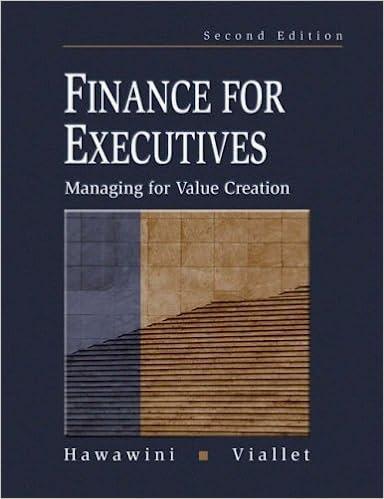Answered step by step
Verified Expert Solution
Question
1 Approved Answer
Determine which fund Coppa should recommend to Stephenson, and justify your choice by describing (and calculating) how your chosen fund best meets both of Stephensons

Determine which fund Coppa should recommend to Stephenson, and justify your choice by describing (and calculating) how your chosen fund best meets both of Stephensons criteria. In addition, as part of the analysis, be sure to calculate the beta of each potential fund relative to the existing portfolio and use this to find the Treynor ratio for each fund (assuming a 0% riskfree rate).
Stephenson, age 35 and single, is a surgeon. Stephenson has accumulated a $2.0 million investment portfolio that has a large concentration in small capitalization U.S. equities. After further evaluation, Stephenson's financial advisor, Carolyn Coppa, has summarized the distribution of Stephenson's current $2.0 million portfolio, which is as follows: Percent Expected of Total Annual Return 4.6% 12.4% 16.0% 3.80 1.6% 195% 29.9% 23.1% Short Temm $200,000 S600,000 Small Cap Equities $1200.000 10% 30% 60% 100% Domestic Large Cap Equities Domestic Small Total Portfolio ,000,000 Stephenson also expects to receive an additional S2.0 million and plans to invest the entire amount in an index fund that best complements the current portfolio. Coppa is, therefore, evaluating four index funds that represent different asset classes not substantially represented in the current portfolio. Coppa plans to evaluate the index funds on their ability to produce a portfolio that will meet the following two criteria relative to the current portfolio: (1) maintain or enhance expected return and (2) maintain or reduce volatility. The characteristics of the four funds Coppa is evaluating are as follows: Index Fund Fund A Fund B Fund C Fund D Expected Annual Return 15% 11% 16% 14% Expected Annual Standard Deviation 25% 22% 25% 22% Correlation of Returms with Current Portfolio +0.80 +0.60 +0.90 +0.65 Determine which fund Coppa should recommend to Stephenson, and justify your choice by describing (and calculating) how your chosen fund best meets both of Stephenson's criteria. In addition, as part of the analysis, be sure to calculate the beta of each potential fund relative to the existing portfolio and use this to find the Treynor ratio for each fund (assuming a 0% risk- free rate)Step by Step Solution
There are 3 Steps involved in it
Step: 1

Get Instant Access to Expert-Tailored Solutions
See step-by-step solutions with expert insights and AI powered tools for academic success
Step: 2

Step: 3

Ace Your Homework with AI
Get the answers you need in no time with our AI-driven, step-by-step assistance
Get Started


